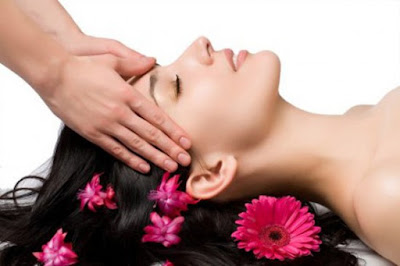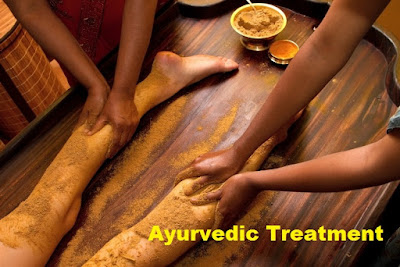What to know about menstruation
Menstrual pain
Women sometimes experience pain symptoms during menstruation, and most women experience "menstrual pain" almost always. Some women experience severe menstrual pain (called dysmenorrhea) and may experience severe discomfort for a few days each menstrual cycle.
You can use over-the-counter painkillers to relieve menstrual pain, but it is best to see a doctor if you have a bad menstrual cramp.
Menorrhagia
Some women have excessive menstrual flow. This is called menorrhagia, which is defined as excessive bleeding, bleeding longer. Most women shed about 6-8 teaspoons of blood during menstruation, but this is almost impossible to measure. If you find yourself needing to change sanitary napkins or napkins very frequently (as recommended by the manufacturer) and see large blood clots, your menstrual flow may be abnormally high.
Menorrhagia can be caused by many factors, including hormonal imbalances, IUDs, or uterine fibroids; for many women, the cause is unknown.
Menstrual period is not necessarily accompanied by dysmenorrhea. However, if you are unlucky enough to experience menorrhagia, severe dysmenorrhea, or irregular menstruation every few days, you will need to see a doctor and consult on how to treat dysmenorrhea and menorrhagia.
If you continue to experience menorrhagia, it is advisable to see a doctor to ensure there is no anemia (anemia and iron deficiency may cause you to feel tired and dizzy).
According to your reasons for menorrhagia, there are many treatments. If caused by hormone imbalance, you can follow the doctor's advice to use a variety of drugs to treat hormone imbalance, for other reasons, there are alternative treatment options.
Menstruation did not come
Some women's menstruation has been very regular for many years, but may not come suddenly for some time. If so, first of all, pregnancy tests should be done at home to rule out pregnancy.
If the menstruation did not come more than 6 months, this is medically called "amenorrhea." There are many reasons why menstruation may suddenly stop, including rapid weight gain and loss, over-exercise and over-stress. If you find yourself having hot flashes and decreased libido, you may be the initial symptom of menopause (menopause).
No matter what your symptoms are, you should seek medical attention if there is a regular menstrual change or stop.
What is PMS?
What is PMS?
Premenstrual syndrome (PMS), also known as premenstrual tension (PMT), is used to describe the many symptoms that many women experience in the second half of the menstrual cycle.
PMS includes a variety of symptoms and it is estimated that as many as 75% of women experience one or more of these symptoms each month. These symptoms may include
Although women with menstruation are prone to PMS, the symptoms of PMS are most common in women in their 20s and 30s. For most women, these symptoms may only cause mild to moderate discomfort or trouble, but in some cases, PMS may be more severe. This is called Premenstrual Discomfort (PMDD).
What caused PMS?
PMS may be the body's response to changes in the hormone levels associated with the menstrual cycle, but no one knows the real reason. Another view is that chemical changes in the brain may be related to PMS, and may also affect the diet (especially salty and caffeinated beverages).
How do I know if I have a PMS?
There are many ways to diagnose PMS, but there is no clear test method. There may be other symptoms similar to those of PMS, so check with your doctor if you are worried about it.
To help diagnose PMS, it is essential that you record the physiologically and psychologically manifested PMS symptoms and the date of the menstrual cycle in 3 or 4 months. It is also helpful to record your daily feeling. After 3 to 4 months, you can probably determine the pattern of symptoms. Although the pattern changes during each menstrual cycle, women with PMS tend to notice that their symptoms stop quickly when the menstrual period really begins. Another model that can help doctors diagnose PMS is whether or not you have a week-long absence of any symptoms during the menstrual cycle.
What can I do to relieve the symptoms?
There are many ways to alleviate the symptoms of PMS, but it may take some attempts to find the one that works best for you.
The most straightforward way to prove it is to make sure to drink more water and ensure a balanced diet. It is best to eat more fresh fruits and vegetables, eat less salt, sugar and processed foods. Many women find that avoiding the intake of caffeine (common in tea, coffee and cola) and alcohol in the presence of PMS may alleviate some of the symptoms. In addition, vitamin B6 and evening primrose oil supplements are recommended as a possible method of alleviating the symptoms of PMS.
Regular exercise can also help, mainly because exercise reduces stress and tension and regulates your mood. If you have a PMS, you may find that walking, swimming or running reduce premenstrual discomfort and try to exercise three times a week for 30 minutes.
If these simple lifestyle changes can not help you control PMS, you should seek more advice from your doctor.



